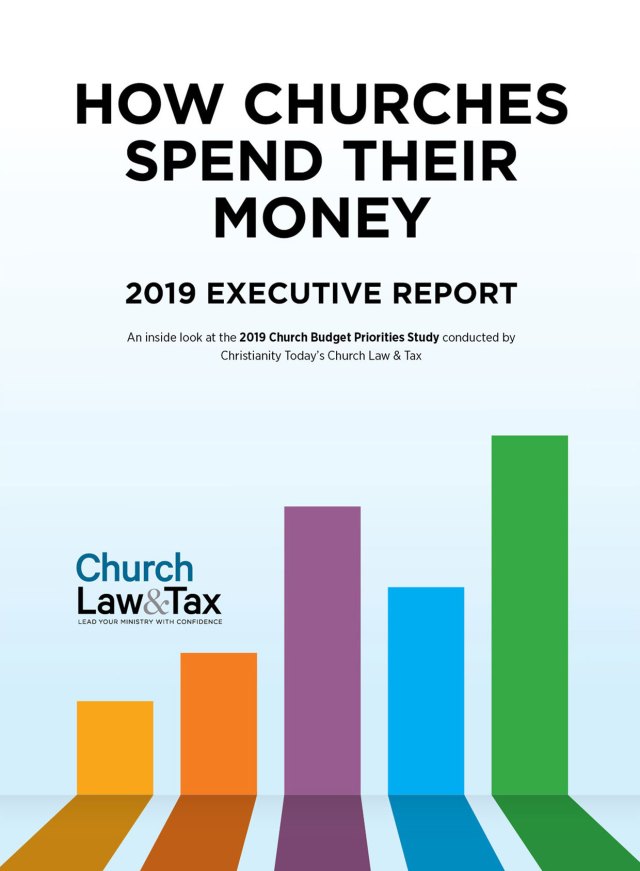When it comes to staying above reproach in finances, churches generally struggle with the same few issues, over and over again. They play out in different ways but the biggest questions they need to answer in order to assess the health of their financial administration are these three.
1. Does your church have fair compensation?
Is that compensation approved independently of the individuals who receive that compensation? You need to make sure that your staff members aren’t directly or indirectly helping determine how much they will be paid. Another question in this area is, Is all of the compensation that is taxable reported as taxable? Or are you giving the pastors a pass and not reporting taxable compensation? How are fringe benefits being reported? Are they taxable, tax-deferred, or tax-free? Dealing with issues of financial reporting is a large task, but it’s necessary to have guidelines in place in order to protect your pastors, your staff, and yourself.
2. Is anyone at your church challenging your senior pastor’s expense report?
If the treasurer is a volunteer on the board, he or she might have a basis for challenging, but if the treasurer is a paid staff member, who is he or she to tell the senior pastor that the documentation is not adequate? It’s critically important to have your pastor’s expense report independently reviewed. In a 2021 nationwide survey conducted by Church Law & Tax, inappropriate expenses or reimbursements was the top form of financial misconduct reported by churches.
Let’s use a business trip taken by me as an example for expense reporting. I traveled for business purposes, so I’m going to turn in an expense report when I get back. Let’s say I use my personal credit cards to charge everything for this trip. I’ll get reimbursed for those expenses only if I can document the business purposes of all of the expenses on my trip. My organization is not on the line for this trip; I’m on the line. And after my expenses are reimbursed for this trip, my expense report goes to the chair of our board for approval. He gets to look at everything I spent, and everything I was reimbursed for. And so the independent review—which doesn’t happen very often in any churches in America—the independent review of the pastor’s expense reports is extremely important.
3. Is your church handling “restricted gifts” properly?
Churches often encounter “restricted” gifts (also commonly referred to as “designated” gifts). A donor gives a gift for a specific project, but the church doesn’t spend the money for the project, and then what happens with that money? It has to go to that specific project. And then you have the issue of gifts being given for the benefit of an individual, which is a situation that is going to raise a concern in most cases.
Adoption funding is one of the biggest restricted giving issues. There’s a natural desire to help families who are adopting. That’s wonderful. But there’s a difference between giving a gift to a church or a charity to provide the adoption funds, and giving the money specifically for one family. When it’s given specifically for one family, this translates the gift into a personal gift, not a charitable gift. This is happening in the crowdfunding arena as well. People are very well intended, and their hearts are obviously in the right place. But they’re raising money, adoption-by-adoption, family-by-family, instead of raising money for adoption in general and letting the organization decide who should receive the adoption funding. It’s kind of a combination of the high interest in helping people adopt children and some of the new funding techniques, as in crowdfunding, that are beginning to come together that we’re going to have to work through so that it’s done legally and ethically and in good order.
Fundraising needs to be given for projects. When you start naming individuals, that is going to raise a concern about benevolence, adoption, or other issues. If I make a gift that is specified for one person for adoption or is specified for a person for a mission trip, those are generally going to be viewed as personal expenses. But if I only suggest the missionary or preference—so it’s a gift to the church but my preference would be that it would go for Bill for his church mission trip or career mission trip, then that’s generally acceptable. But when we’re restricted, it’s like me giving you a personal gift; it’s not taxable to you, but it’s not deductible to me.
Those are the three hot-button issues that we’re seeing right now. Compensation, expense reimbursements, and restricted giving. Of course, there are other issues that churches struggle with, and we see those on an individual basis, but overall, if you’ve got these three covered, you are doing a lot right.
Want to learn more on best practices for church finances? Check out our resource, Church Finance: The Church Leader’s Guide to Financial Operations.





